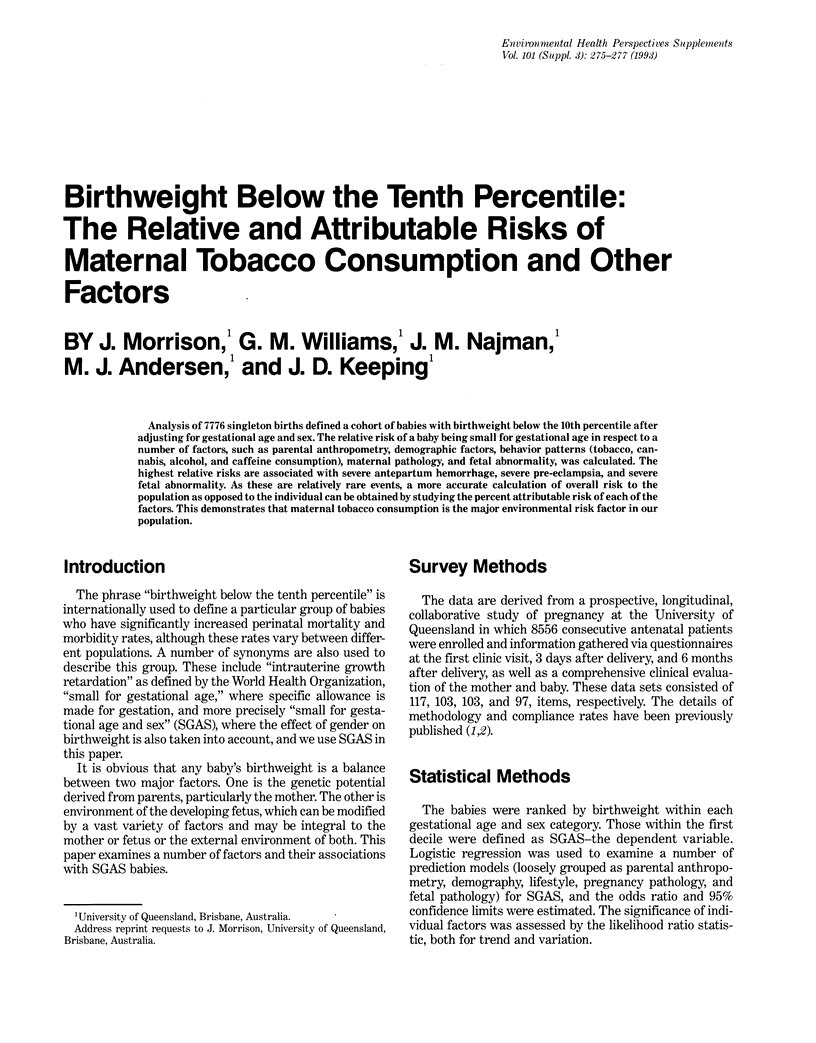Abstract
Analysis of 7776 singleton births defined a cohort of babies with birthweight below the 10th percentile after adjusting for gestational age and sex. The relative risk of a baby being small for gestational age in respect to a number of factors, such as parental anthropometry, demographic factors, behavior patterns (tobacco, cannabis, alcohol, and caffeine consumption), maternal pathology, and fetal abnormality, was calculated. The highest relative risks are associated with severe antepartum hemorrhage, severe pre-eclampsia, and severe fetal abnormality. As these are relatively rare events, a more accurate calculation of overall risk to the population as opposed to the individual can be obtained by studying the percent attributable risk of each of the factors. This demonstrates that maternal tobacco consumption is the major environmental risk factor in our population.
Full text
PDF


Selected References
These references are in PubMed. This may not be the complete list of references from this article.
- Keeping J. D., Najman J. M., Morrison J., Western J. S., Andersen M. J., Williams G. M. A prospective longitudinal study of social, psychological and obstetric factors in pregnancy: response rates and demographic characteristics of the 8556 respondents. Br J Obstet Gynaecol. 1989 Mar;96(3):289–297. doi: 10.1111/j.1471-0528.1989.tb02388.x. [DOI] [PubMed] [Google Scholar]
- Morrison J., Williams G. M., Najman J. M., Andersen M. J. The influence of paternal height and weight on birth-weight. Aust N Z J Obstet Gynaecol. 1991 May;31(2):114–116. doi: 10.1111/j.1479-828x.1991.tb01795.x. [DOI] [PubMed] [Google Scholar]
- Najman J. M., Morrison J., Williams G. M., Keeping J. D., Andersen M. J. Unemployment and reproductive outcome. An Australian study. Br J Obstet Gynaecol. 1989 Mar;96(3):308–313. doi: 10.1111/j.1471-0528.1989.tb02390.x. [DOI] [PubMed] [Google Scholar]


